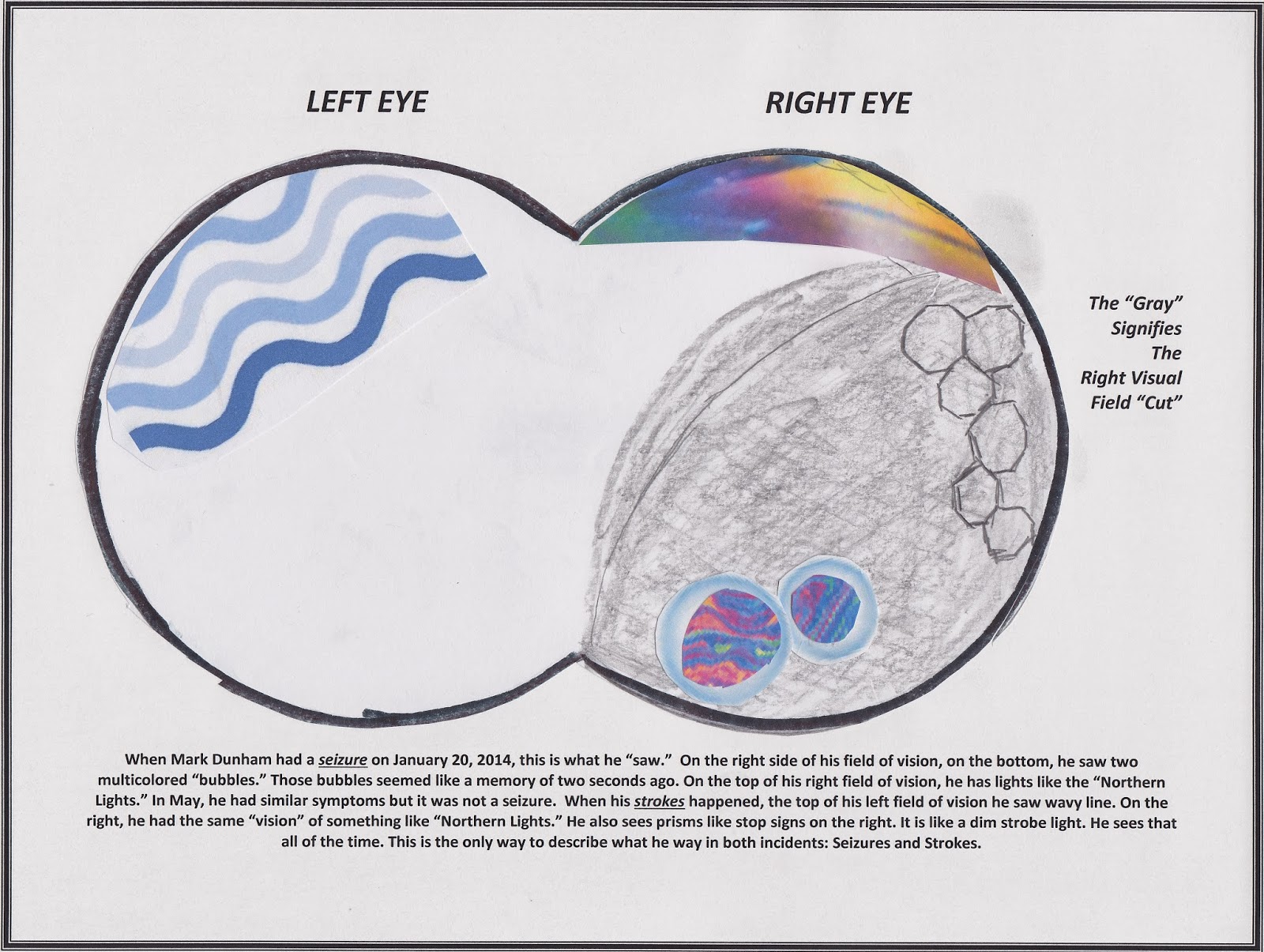 When I used to visit my Grandmother Agnes Dunham in Kalispell, Montana, I remember
her telling me that she had “floaties” in her eyes. She described it as “the
gel in the eyes have ‘floaties’ meaning there are dark spots in the eyes.” She continued
describing the condition saying it is “like having a piece of lint on a camera
lens.”
When I used to visit my Grandmother Agnes Dunham in Kalispell, Montana, I remember
her telling me that she had “floaties” in her eyes. She described it as “the
gel in the eyes have ‘floaties’ meaning there are dark spots in the eyes.” She continued
describing the condition saying it is “like having a piece of lint on a camera
lens.”
For some reason, I have always remembered her description. I
have always had “floaties.” I have always ignored them but if I concentrate, I
can see my floaties.
Because of my strokes and the loss of vision on my right
side, I am very conscious about my eyes. When I first had symptoms before my
strokes, I had 7 of what I thought were migraines. My vision on my left side seemed wavy and on the right side, on the top I had auras like the Northern Lights.
I now know that those headaches and auras are classic signs
that you might have a stroke. Even though I had an MRI because I was concerned,
they did not find anything, and I had my first stroke three days later on
January 10, 2012.
After the “big” stroke, I lost part of my right visual
field. For me, I see fine, but it is like a horse with blinders on the right
side. I do not notice that I do not have right side peripheral issues.
When I am falling asleep, I see prisms like stop signs on my right visual
field. I hoped that shapes were my eyes healing. I still see those, but I just
do not notice anymore.
Last May, I had an “incident” and the doctors and nurses told me "it was NOT a seizure." My neurologist said I should take anti-seizure
medication “just in case.” I hated the side effects, and my regular doctor
agreed I should stop taking that medication. And I did after consulting with my
neurologist.
Fast forward to January 20, 2014 last month, I had a full
blown grand mal seizure. It started in the Capitol building and I walked to my office three blocks away. I did not remember anything after my office when I woke up at St. Al's in intensive care.
I realized I had the same symptoms like in May. The symptoms were different than my stroke symptoms.
I realized I had the same symptoms like in May. The symptoms were different than my stroke symptoms.
When I had "not-a-seizure-just-a-brain-incident" in May and the grand mal seizure last month, I had an aura. It centered on the
bottom of my right eye, and I had two vivid perceptions like a cartoon bubble.
In the bubbles, I was seeing a memory of two seconds ago. I did see a slight
aura on the top of my right visual field but not pronounced like when I had
strokes.
After the seizure last month I have also noticed that my
right “pinkie” finger is not working like it used too. When my big second
stroke happened, I was essentially paralyzed making my right arm useless. It
came back soon because of acupuncture. But now, since the seizure, I have issues
like numbness with the pinkie finger, tremors in my hands, and my left eye lid spasming
slightly.
Part of it, I have two anti-seizure medications in my system. I am hopeful that when I stop taking one of those
medications and I get used to the drug, it will even out.
Everyday is a new adventure!


Comments